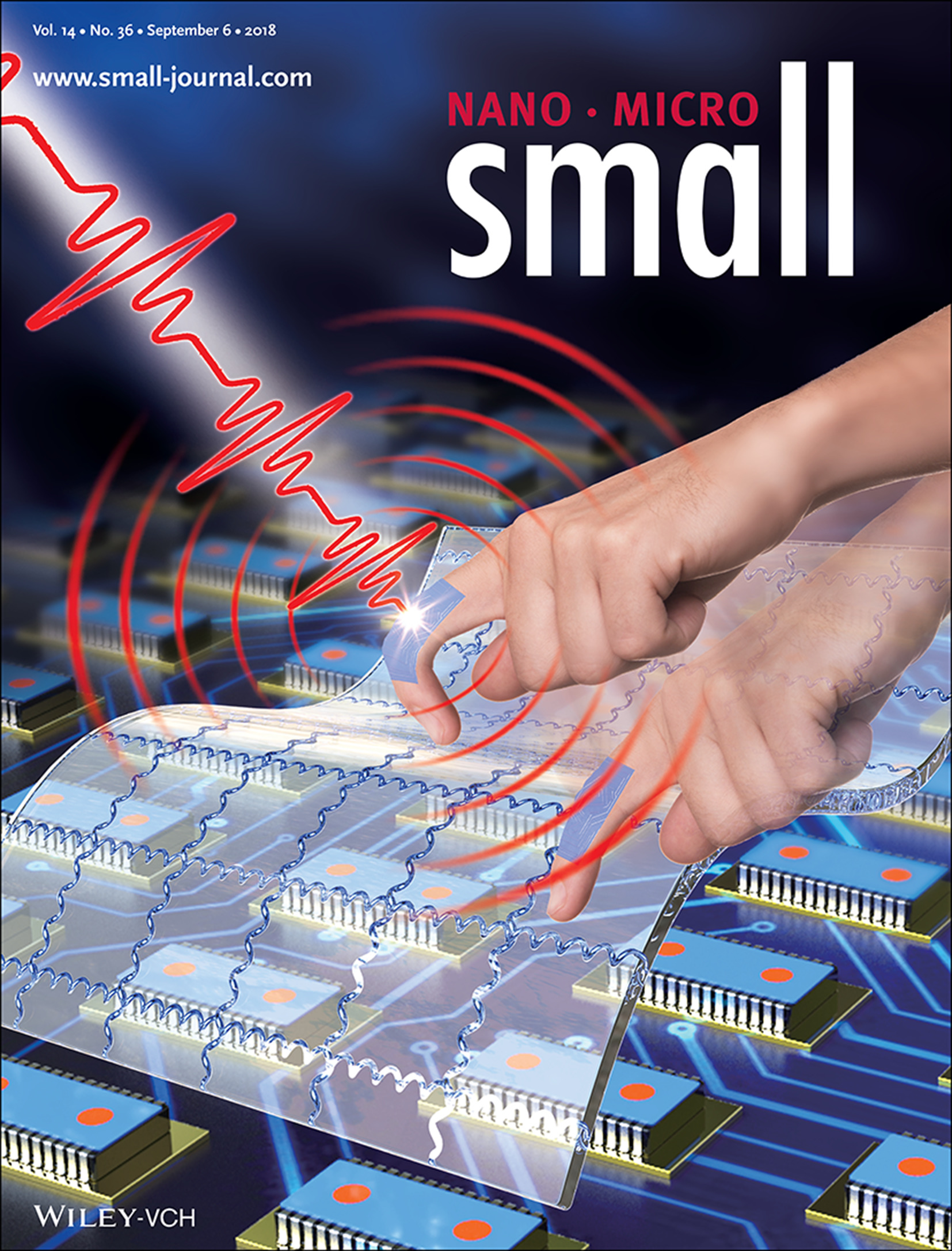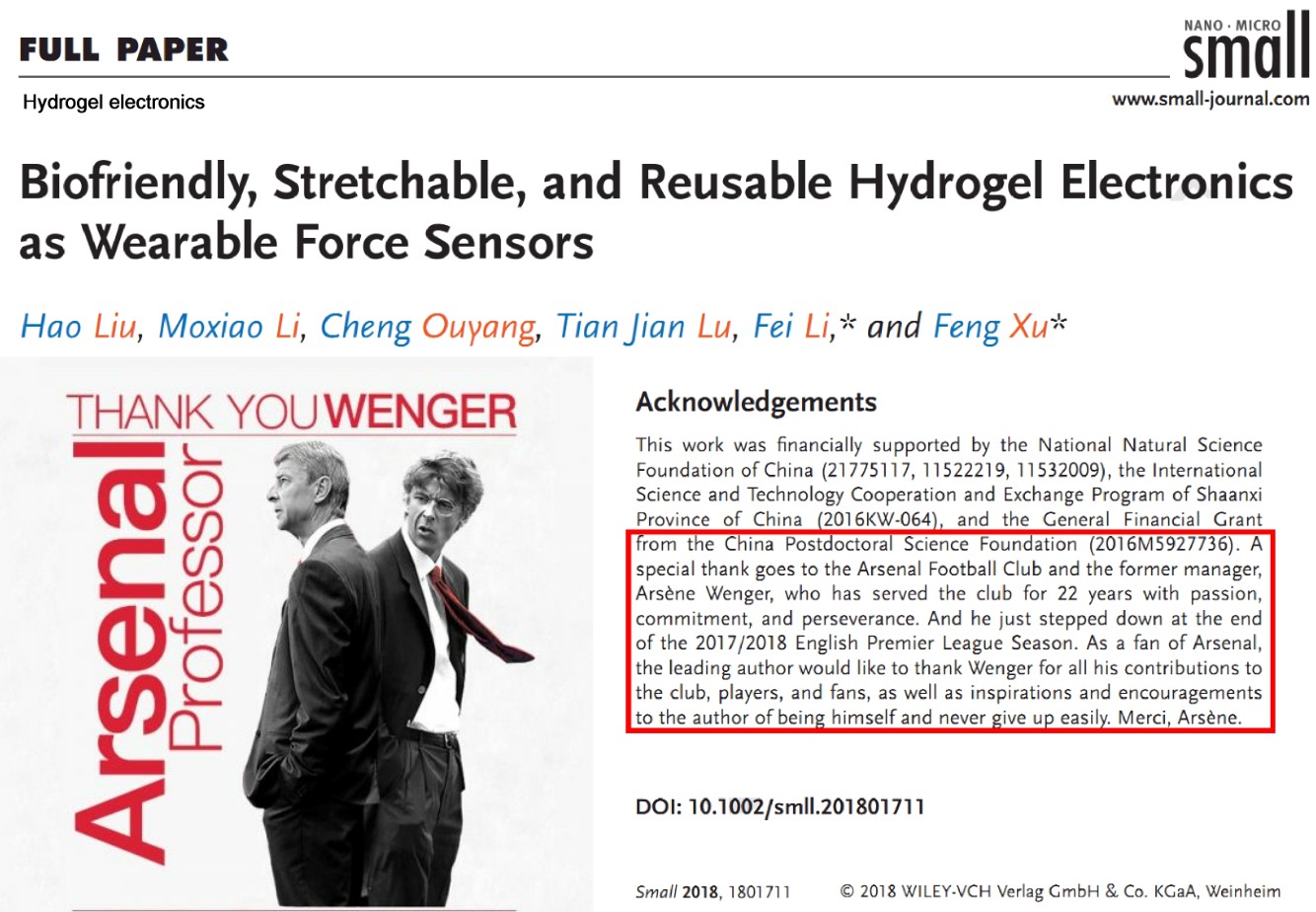Recently, Ph.D. student Hao
Liu from BEBC published a paper on the international top journal Small (IF
9.598) as the first author with the title of “Biofriendly, Stretchable, and
Reusable Hydrogel Electronics as Wearable Force Sensors” under the joint
guidance of Prof. Tianjian Lu, Prof. Xu Feng and Associate Professor Li Fei. This
research paper is also presented as the cover story.

Flexible electronics are
light, soft, stretchable and can be attached to skin, which allow for wearable
electrophysiological signals monitoring and a good user experience, thus become
a hot research field of biomedical engineering in recent years. The realization
of flexible electronic functions relies on the use of flexible substrate
materials. Although the widely used silicon-based materials (such as
polydimethylsiloxane, etc.) exhibit good mechanical ductility, their lack of
biocompatibility and mismatched mechanical properties with human skin will
discomfort or even cause inflammation to users in the long-term wear, which
greatly affecting the user experience. Therefore, a substrate material owns
both biocompatibility and suitable mechanical ductility is yet to be
discovered. The emergence of highly biocompatible, mechanically controllable
hydrogel materials has brought the possibility of solving this problem. Based
on the fruitful research results of the long-term use of porous biomaterials
for tissue remodeling and targeted drug delivery, Hao Liu proposed a method for
preparing user-friendly and reusable flexible electrons using hydrogel
materials. In this study, a soft stretchable hydrogel material was used as a
substrate, and a three-dimensional spiral passage was prepared in the hydrogel
by templating where liquid metal (EGaIn) was filled as the conductive
component.
Thanks to the uniform
distribution of three-dimensional spiral under stress and the conformation of
liquid conductive material, the flexible hydrogel electron exhibits good
functional stability and great prospects in wearable strain sensing and
pressure sensing. Moreover, because the excellent swelling properties of hydrogel,
it can be rehydrated after dehydration and atrophy. Thus even the dehydrated,
functionally disabled flexible hydrogel electrons can be functionally
resuscitated by simply immersing in water, providing a viable solution to solve
the large amount of e-waste problems worldwide.
Co-authors of this paper
include Ph.D. student Moxiao Li , Prof. Tianjian Lu, Prof. Feng Xu and
Associate Professor Li Fei. Hao Liu also thanked Associate Professor Huang
Guoyou for his inspiration and help during the experimental design process. In
addition, as an Arsenal fan, Hao Liu also hopes to pay tribute to the former
coach of Mr. Wenger, who has just stepped down after the end of the season.
